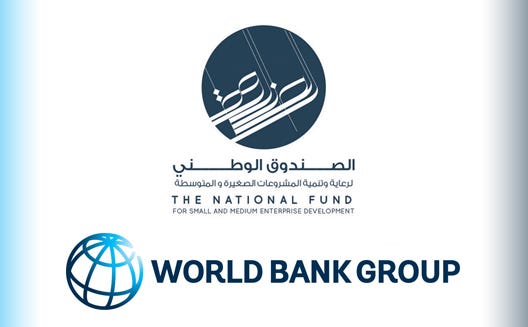Viaka #17: Analyzing MENA regulatory startup environments - how can policy affect entrepreneurs?
Viaka is an initiative connecting new VC’s in emerging markets to networks and investors in the “West”. If you would like to join our private community, please fill out this form and we’ll get in touch with you to see how Viaka can work specifically for you.
Our weekly newsletter shines the spotlight on one of our partner VCs or start-ups, and lists all available opportunities from our network. Feel free to subscribe below.
Hi everyone! This week, we’re focusing on the impacts of regulatory environments on the MENA startup ecosystem. Enjoy!
Regulatory environments play a crucial role in fostering a competitive financial and business ecosystem for startups, especially in the Middle East and North Africa. Many government initiatives have popped up in the past few years to encourage MENA economies towards digitization. In Kuwait, the government has established the National Fund for SME Development. In Lebanon, the Central Bank invests in startups via its “Start-Up Fund”. Bahrain houses a Fintech VC fund and accelerator with regulatory and licensing environments specifically tailored towards fintech startup growth. Jordan’s Central Bank has partnered with the World Bank to establish a USD $98 million Innovative Startups Fund.
One of the most notable examples of government-supported pro-startup regulatory environments comes from Tunisia’s 2018 “Tunisia Startup Act”. The Startup Act exists under the Tunisian government’s larger “Digital Tunisia 2020” strategy toward the digitization of the nation’s economy. The Startup Act has increased the number of startups in Tunisia, especially those within the high-tech sector. With this, the local economies have provided more tech-enabled youth to have entrepreneurial employment.
Pre-dating the Startup Act was the African Union’s 2017 decision to place the Digital African Excellence Center in Tunis. The Center trains African government leaders and private sector executives in tools vital for excelling in the digital economy.
However, as is the case in many North African and Middle Eastern economies, adequate and built-out legal and regulatory systems in Tunisia must be in place to set a precedent for the growth in the startup and digital economies. Tunisia’s solution (Startup Act) includes more specific definitions of what constitutes a startup and up to eight years of tax exemptions for startups. Other notable measures of the act include giving public and private sector employees one year to start a business after which they may return to their previous job; providing government-funded compensation for the founders of a startup for their first year; and allowing entrepreneurs to set up a foreign currency account for the internationalization of their businesses.
The legislative process for the Startup Act began in early 2016, when a group of 70 investors, accelerators, and entrepreneurs held a brainstorming session on how to bring forward entrepreneurially-friendly legislation to Tunisia. After partnering with the then-Minister of Technology, a task force brought forward their ideas to the parliament. Interest group TunisianStartups handled public relations of the legislative process, leading to its popularity in the public sphere. The Act was eventually built-out and passed in 2018, with its program in place today.
The Startup Act website currently lists 11 programs, with five of those being actively available to entrepreneurs and three planned to be released in the future. The 2019 Startup Act Annual Report provides an in-depth look at the success of the Act a few years after its passing. For example, 248 official startup labels of merit were granted to startups in Tunisia. Additionally, an average of 1,517 TND was granted to labeled startups.
The Tunisian Startup Act and other examples of regulatory changes in MENA governmental structures point toward a growing affection for the benefits of a digital and entrepreneurial economy. However, legislative actions are just the start towards transforming MENA economies to be growth tech-focused. Changes to educational systems and monetary/fiscal policies can also add to the effects of Startup Act-esque legislation.
Promising Opportunities from Our MENA Partners
Below are a list of opportunities curated from the Viaka’s MENA partners.
For Founders
Plus.vc invests in early-stage founders (up to Series A) that have a MENA background or connection, but are founding their companies outside of MENA.
*I’m interested*
For Investors
Meacor is a start-up developing novel minimally invasive medical devices with a special focus on transcatheter interventions for valvular disease.
*I’m interested*
For Advisors
Klangoo, an AI-startup providing Natural Language Processing (NLP) to media and software companies, is looking for an advisor familiar with NLP use cases in the world of financial services, particularly in underwriting and risk management. This opportunity can be compensated.
*I’m interested*
If you would like to get involved with any of the opportunities above, please fill out the form below and indicate what opportunity you are interested in in the “Reason for Joining” section.
Exciting Announcements From Our Network
Below is a list of updates, wins, and asks emanating from members of the Viaka Network in the “West.”
Shout-out to the team at Klangoo, who recently announced the completion of the Klangoo Fintech Challenge. The event, which was co-organized by Zaka, had 17 different competing teams from 10 countries. Three winners were chosen, including the “FAST” team, which won the top prize. For more detailed information, including the possibility of the next challenge, click here!
Startup Boston has launched the registration of its five-day Startup Boston Week. The program will be held from September 19-23rd, 2022, and will have over 80 events and 250 speakers. The week is geared towards anyone with an interest in startups, with resources to connect, scale, and celebrate the community. Sessions featured include topics geared towards first-time founders, startup employees, advisors, and more. Sign up here!
If you’re a member of our Network and would like to share your own update next week, email info.viaka@gmail.com or submit an update via this form.
That’s it for this week. Thank you!
Like what you see? Here are some things you should do:
Check out our sparkling new website
Sign up for the Viaka Network
Subscribe to this newsletter










